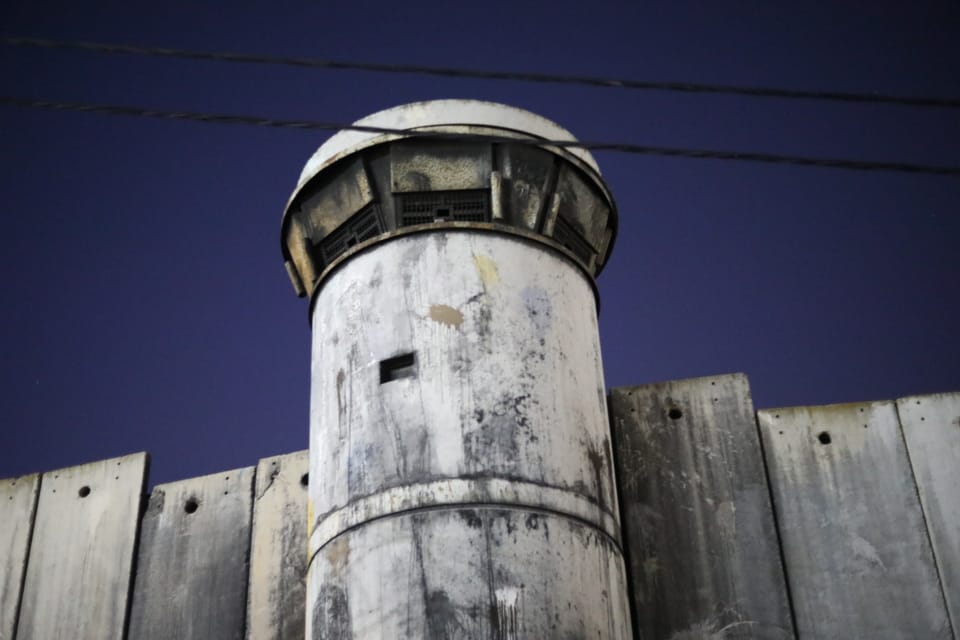Soul & Soil Pt. V

This edition is available to all (except the paid exclusives). Support my work and upgrade to paid here for as little as $5 a month.
Your writing style resonates with me. It is engaging, thoughtful, and effectively conveys complex ideas in a way that feels both personal and impactful. Chef's kiss to the listening, feeling, and seeing section of your newsletter.
LISTENING: to my halloween playlist after an epic party saturday
FEELING: ready to hibernate
SEEING: my trader joe's sour strawberry candy belts
Halloween is around the corner, but I'm not scared of black cats and white ghosts. I'm scared of a world that chooses apathy over action. I fear governments that would rather erect walls than grow trees. That's the stuff of nightmares.
Wanna' know what I find spooky? Israel's broken ceasefire in Gaza, where it killed more than 100 people Wednesday. The military also attacked the West Bank city of Jenin Tuesday, leaving at least three dead. The offense marked Israel's first airstrike in the West Bank in nine months.
It's chilling to imagine what more the far-right government of Benjamin Netanyahu has planned for Palestinians. Today's edition is the last of the Soul and Soil series, but I'll never stop writing about Palestine. The land and its people live on in my heart now. One day, I hope to see it liberated. I hope to see the walls fall down and the trees flourish. If not in my lifetime, then in the next.
Now, I'll share my interview with Abbas Milhem, the executive director of the Palestinian Farmers Union, which serves 20,000 farmers. It's the largest membership in Palestine that represents the sector in the West Bank and Gaza.
READ PARTS I, II, III, AND IV HERE, HERE, HERE, AND HERE.
Abbas Milhem has been to the last three international climate negotiations, but he won't attend COP30 in Brazil this year. The journey is too long. He's more interested in actual solutions these days, anyway. Those lurk in the people who know the land best: farmers.
As executive director of the union, he's interested in building a farmers' movement that claims its rights to the land. They lobby governments with the hope that local policies shift that could benefit their livelihoods. The group is also focusing a lot more on climate change, which is challenging farmers intensely.
"We're feeling the negative impacts of climate change although we contribute almost nothing to climate change," Milhem said. "We're paying the price of others."
As the olive harvest begins, the union is organizing to help comrades reach their crops. More than half of its farmers haven't been able to access their lands since Israel's genocide in Gaza began over two years ago. In 2023, farmers lost about half of their harvest due to violent settler attacks.
There's strength in numbers. Sure, international volunteers are invited to help, but locals have been stepping up as the number of outsiders dwindles. "When they go collectively, they provide some safety," Milhem said. "It's not that easy for a settler or two settlers to attack a group of 30 on one olive farm."
It's a group effort that requires the collaboration of local municipalities to assist in transporting the crops. Sometimes, groups will ask the media to accompany them during the harvest to increase visibility should the situation escalate.
Every month, the union provides its members with a settler violence update that lays out the crimes committed against its farmers. Across the West Bank, Milhem says the union documents 13-14 attacks a day on average.
There has never been a more urgent moment for solidarity. He hopes to reach his own olive farms this year. He hasn't been able to since Oct. 7, 2023. If Israeli forces keep him from tending the land another year, he might lose it altogether. An archaic Ottoman law dictates that Israel can take any lands that haven't been used for agriculture for three years.
I can't help but wonder how many families will formally lose their land titles this year. One is too many. 🌀
Subscription FYIs
You can always adjust your subscription here. The newsletter has several tiers, so if you're able to give more or need to give less, please adjust it as you see fit.
I'm also giving paid subscribers a first look into my children's book. I wrote about this last year, but here is the landing page where I'm keeping track of all the editions where you can find what I've shared so far. Send agents my way!
The newsletter ends here for free subscribers. Why not upgrade?
Rest in Power
While we can't say for certain that climate change led to these specific weather events (we need attribution studies for that), we do know that the Earth's rising temperatures are already creating more frequent and/or stronger disasters like these.
Hurricane Melissa barreled into the Caribbean this week. Thirty deaths have been confirmed, mostly in Haiti and Jamaica.
Meanwhile, Vietnam is reeling from its own disaster. Floods have killed at least 10 people in Central Vietnam.
Currently Reading
Fuck Big Tech. Adam Mahoney writes about the Black communities rising up against data centers for Capital B.
Amber X. Chen will be one of the great environmental journalists to come out of her generation. For Smithsonian Magazine, she writes about the importance of native plants in building a more wildfire-resilient California.
Sara Hashemi on the first French village to relocate due to climate change for the Guardian.
Could a country build its oil industry without ruining its clean, green rep? Jake Bittle investigates for Grist.
I hate covering politics, but I love reading about it! For The New Republic, Greg Sargent covers a new report outlining all the Democratic Party's failings — and where it goes from here.
Art

Jen designed this super fun and collaborative art game! I'll share the link with you all if she ever decides to sell it online. :)
Lots to write about for next week. Talk to you all then! xx
- Yessenia


Comments ()